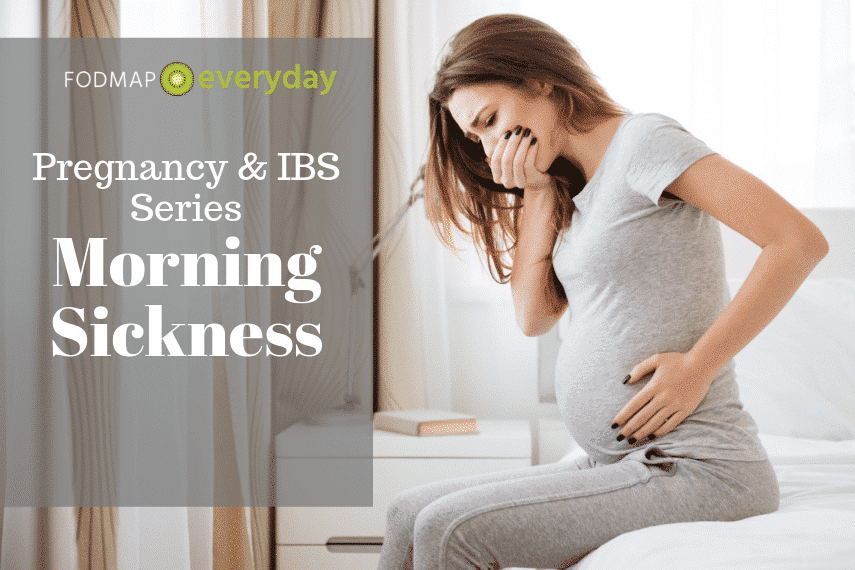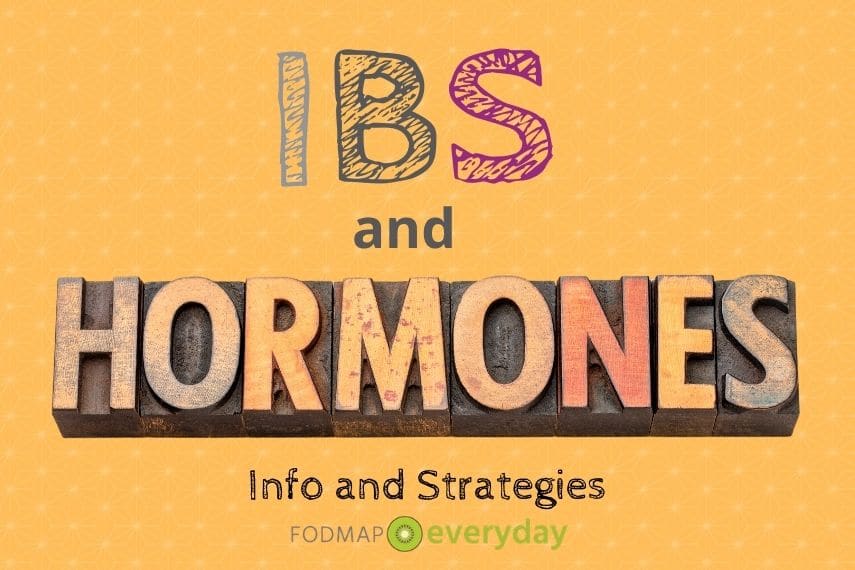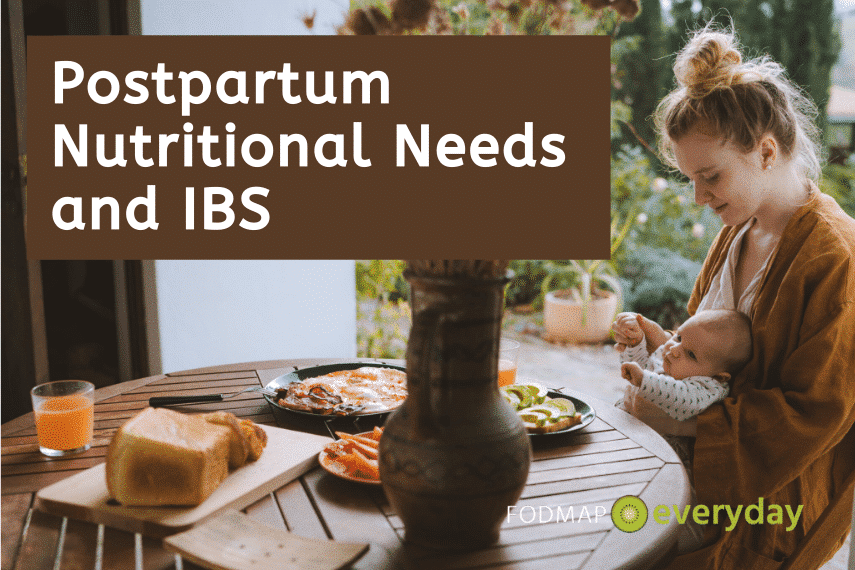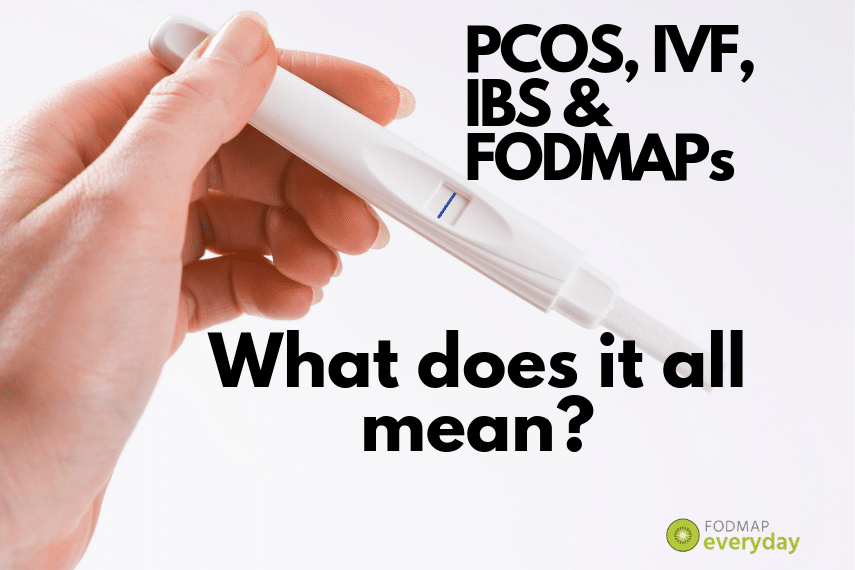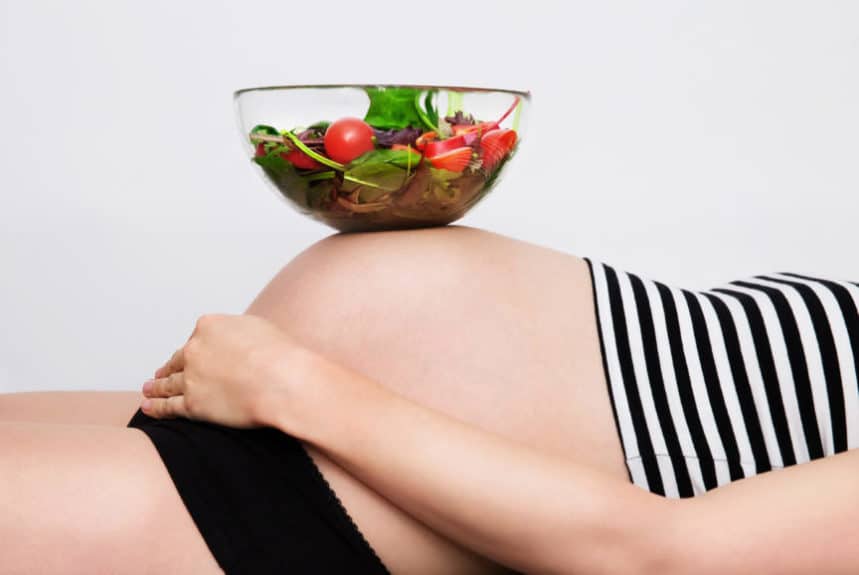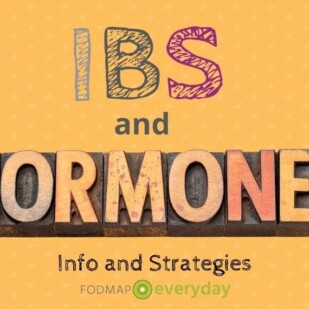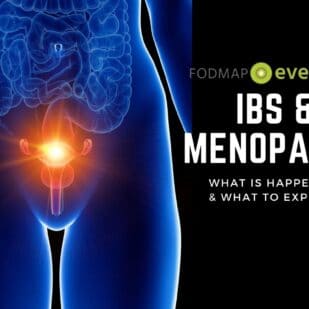Have you noticed that your IBS symptoms worsen around your period? You are not alone!
Due to hormonal changes around that time of the month, your gut will become more sensitive. You may also notice that some of your own lifestyle habits change.
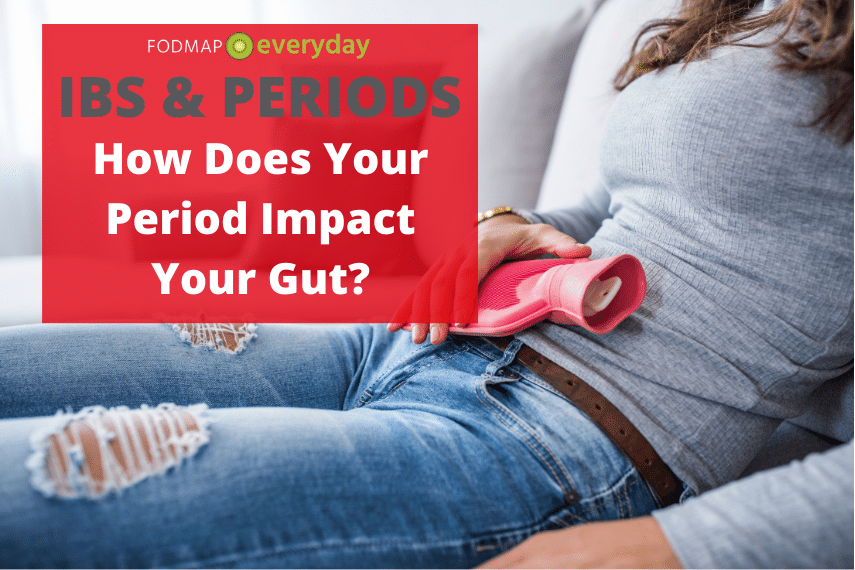
In this post, I will explain to you why your period may cause IBS symptoms and what you can do about it.
Hormones, IBS & Your Period
Did you know that female sex hormone receptors are found within a women’s gastrointestinal tract?
It is thought that they may play a role in the gut-brain axis but there is currently limited research in this area (1).
Your hormone levels tend to vary throughout the 3 phases of your cycle.
3 Phases Of Menstrual Cycle
Here are the 3 phases of your menstrual cycle:
- The follicular phase
- Ovulation
- The luteal Phase
Estrogen levels rise mid-luteal phase before then dropping prior to your menstruation and progesterone levels also drop at this time (3).
The drop in hormone levels seem to coincide with increased IBS symptoms (2).
Interestingly, women are also twice as likely to have IBS than men. Having periods or the hormone fluctuations that come with this may be one explanation (4).
Mental Health, Periods & The IBS Connection
Most women will suffer with changes in their mental health in the week prior to their period (5).
This is known as premenstrual syndrome, aka PMS (5).
Common PMS Symptoms
Common PMS symptoms include;
- Mood swings
- Feeling upset, anxious or irritable
- Problems sleeping
- Headaches
Another suggestion around why IBS symptoms worsen around this time is that a reduced mood can cause reduced tolerance or hypersensitivity (6).
This would make sense as we already known depression and stress are connected to IBS via the gut-brain axis (7).
How Do Your Lifestyle Habits Change During Your Period?
Diet Counts
You may not realize this, but your own lifestyle habits could be impacting your IBS symptoms during your period.
One study showed that women have a higher intake of calories and carbohydrates during the luteal phase (just before your period) (5). It could well be that during this time you tend to eat larger portions or more FODMAPs which could trigger your symptoms.
Get In Some Exercise
Another area to consider is looking at exercise levels.
You may feel like this is the last thing you want to do but taking part in regular exercise throughout your period has been shown to reduce symptoms (8).
Simple Steps To Improve Your IBS During Your Period
While we don’t completely understand the connection between IBS and periods, we can put some things into place so that our IBS is better controlled.
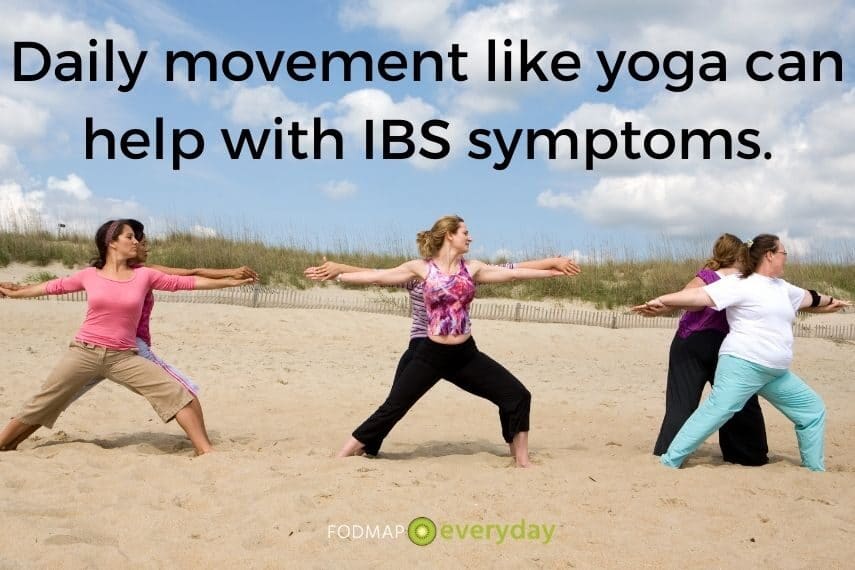
- Daily movement – even if you don’t feel like vigorous exercise, something gentle such as yoga can help.
- Avoid FODMAPs – you may not need to go completely low FODMAP, but a general reduction could help your symptoms while your gut is more sensitive.
- Weigh out portion sizes.
- Prioritize sleep – getting enough sleep could help to balance the negative impact on your mood that your hormones will have.
Stress & IBS
Stress is often a co-factor with IBS. IBS can create stress, and stress can trigger IBS symptoms. If this is true for you, please check out our article on IBS & Stress.
The Takeaway
IBS symptoms appear to worsen in the week leading up to ‘that time of the month. This is likely caused by both hormonal changes and our own lifestyle habits.
While we have little control over our own hormones some good lifestyle habits may help to alleviate some of these symptoms. Following a low FODMAP diet at this time may also go a long way to preventing an IBS flare up.
And if you are looking for information on IBS and menopause, we have an article for you.
Related Posts
Breastfeeding on a Low FODMAP Diet
Pregnancy & IBS Series: Morning Sickness
Hormones & IBS: Strategies to Improve Hormone Induced IBS Symptoms
Pregnancy & IBS Series: Postpartum Nutritional Needs & IBS
Pregnancy & IBS Series: PCOS, IVF, IBS & FODMAPs – What does it all mean?
Pregnancy, GI Discomforts & FODMAPs
References
- https://www.ncbi.nlm.nih.gov/pmc/articles/PMC3949254/
- https://pubmed.ncbi.nlm.nih.gov/19406367/
- https://pubmed.ncbi.nlm.nih.gov/19099613/
- https://pubmed.ncbi.nlm.nih.gov/12886671/
- https://www.nhs.uk/conditions/pre-menstrual-syndrome/
- https://www.sciencedirect.com/science/article/abs/pii/S0003426616300919
- https://pubmed.ncbi.nlm.nih.gov/27870997/
- https://pubmed.ncbi.nlm.nih.gov/8027958/

